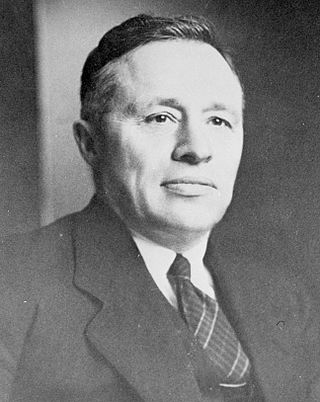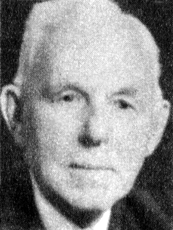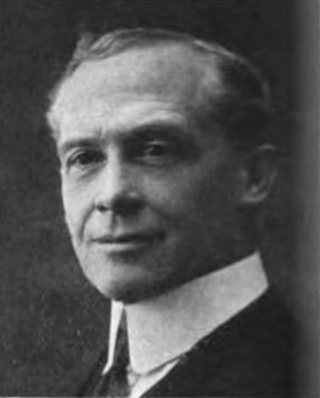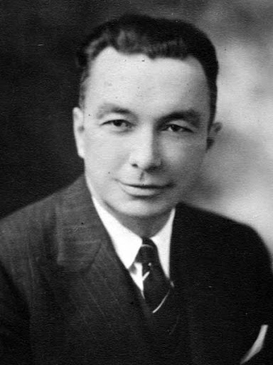Related Research Articles
The Progressive Party of Canada, formally the National Progressive Party, was a federal-level political party in Canada in the 1920s until 1930. It was linked with the provincial United Farmers parties in several provinces, and it spawned the Progressive Party of Saskatchewan, and the Progressive Party of Manitoba, which formed the government of that province. The Progressive Party was part of the farmers' political movement that included federal and provincial Progressive and United Farmers' parties.
There have been various groups in Canada that have nominated candidates under the label Labour Party or Independent Labour Party, or other variations from the 1870s until the 1960s. These were usually local or provincial groups using the Labour Party or Independent Labour Party name, backed by local labour councils made up of many union locals in a particular city, or individual trade unions. There was an attempt to create a national Canadian Labour Party in the late 1910s and in the 1920s, but these were only partly successful.
The Progressive Conservative Party of Manitoba is a centre-right political party in Manitoba, Canada. It is currently the governing party in the Legislative Assembly of Manitoba, after winning a substantial majority in the 2016 election and maintaining a majority in the 2019 election.

James Garfield Gardiner was a Canadian farmer, educator, and politician. He served as the fourth premier of Saskatchewan, and as a minister in the Canadian Cabinet.

John Thomas Haig, was a politician in Manitoba, Canada. He served as parliamentary leader of the Manitoba Conservative Party in 1921–22.

James Washington Breakey, was a politician in Manitoba, Canada. He was briefly the leader of the Manitoba Liberal Party, and was subsequently a supporter of the province's Liberal-Progressive coalition government.

Frederick John Dixon was a Manitoba politician, and was for several years the dominant figure in the province's mainstream labour and Henry George Single Tax Georgist movements. Also a proponent of proportional representation, he served as MLA in the Manitoba Legislature from 1914 to 1923.
Seymour James Farmer was a politician in Manitoba, Canada. He served as Winnipeg MLA from 1922 to 1949. During this time he also served as mayor of Winnipeg 1923-1924 and later as city councillor in the late 1920s and in the 1930s. He was the leader of the Manitoba Co-operative Commonwealth Federation from 1935 to 1947. He served as a cabinet minister in Manitoba's World War I coalition government.
Fawcett Gowler Taylor, was a Manitoba politician, and was the leader of that province's Conservative Party from 1922 to 1933.

Errick French Willis was a politician in Manitoba, Canada. He served as leader of the province's Conservative Party between 1936 and 1954, and was responsible for beginning and ending the party's alliance with the Liberal-Progressive Party. He also served as Manitoba's 15th Lieutenant Governor between 1960 and 1965.
Edward Ingo Dow was a politician in Manitoba, Canada. He served as a Liberal member of the Legislative Assembly of Manitoba from 1959 to 1962, from 1966 to 1968, and from 1968 to 1969.
Skuli Sigfusson was a politician in Manitoba, Canada. He served in the Legislative Assembly of Manitoba on three occasions: from 1915 to 1920, 1922 to 1936, and 1941 to 1945.
Ewan Alexander McPherson was a politician in Manitoba, Canada. He served in the House of Commons of Canada from 1926 to 1930. He was also a member of the Legislative Assembly of Manitoba from 1914 to 1920 and from 1932 to 1936, and served as a cabinet minister in the government of John Bracken.
Robert Alexander Hoey was a politician in Manitoba, Canada. He was a member of the House of Commons of Canada from 1921 to 1925, served in the Legislative Assembly of Manitoba from 1927 to 1936, and was a cabinet minister in the government of John Bracken.
John Williams was a politician in Manitoba, Canada. He served in the Legislative Assembly of Manitoba from 1907 to 1910, and again from 1914 to 1922. Williams was a member of the Manitoba Liberal Party, and briefly served as a cabinet minister in the government of Tobias Norris.
George Allison Grierson was a politician in Manitoba, Canada. He served in the Legislative Assembly of Manitoba from 1914 to 1922, and was a cabinet minister in the government of Tobias Norris. Grierson was a member of the Liberal Party.
George William McDonald was a politician in Manitoba, Canada. He served in the Legislative Assembly of Manitoba from 1915 to 1922 as a member of the Manitoba Liberal Party, and later sat in the House of Commons of Canada from 1935 to 1940 as a Liberal-Progressive.

Thomas Herman Johnson was a politician in Manitoba, Canada. He served in the Legislative Assembly of Manitoba from 1907 to 1922, and was a prominent cabinet minister in the government of Tobias Norris. Johnson was a member of the Liberal Party.
The Progressive Party of Saskatchewan was a provincial section of the Progressive Party of Canada and was active from the 1920s to the mid-1930s. The Progressives were an agrarian, social democratic political movement. It was originally dedicated to political and economic reform; it also challenged economic policies that favoured the financial and industrial interests in Central Canada over agrarian interests. Like its federal counterpart it favoured free trade over protectionism.

Tobias Crawford Norris was a Canadian politician who served as the tenth premier of Manitoba from 1915 to 1922. Norris was a member of the Liberal Party.
References
- 1 2 3 4 5 "Richard Gardiner Willis (1865-1929)". Memorable Manitobans. Manitoba Historical Society. Retrieved 2013-01-31.
- 1 2 3 "MLA Biographies - Deceased". Legislative Assembly of Manitoba. Archived from the original on 2014-03-30.
- ↑ "Souris, Manitoba (1903 - 1952)". History of Federal Ridings since 1867. Library of Parliament. Retrieved 2013-01-31.